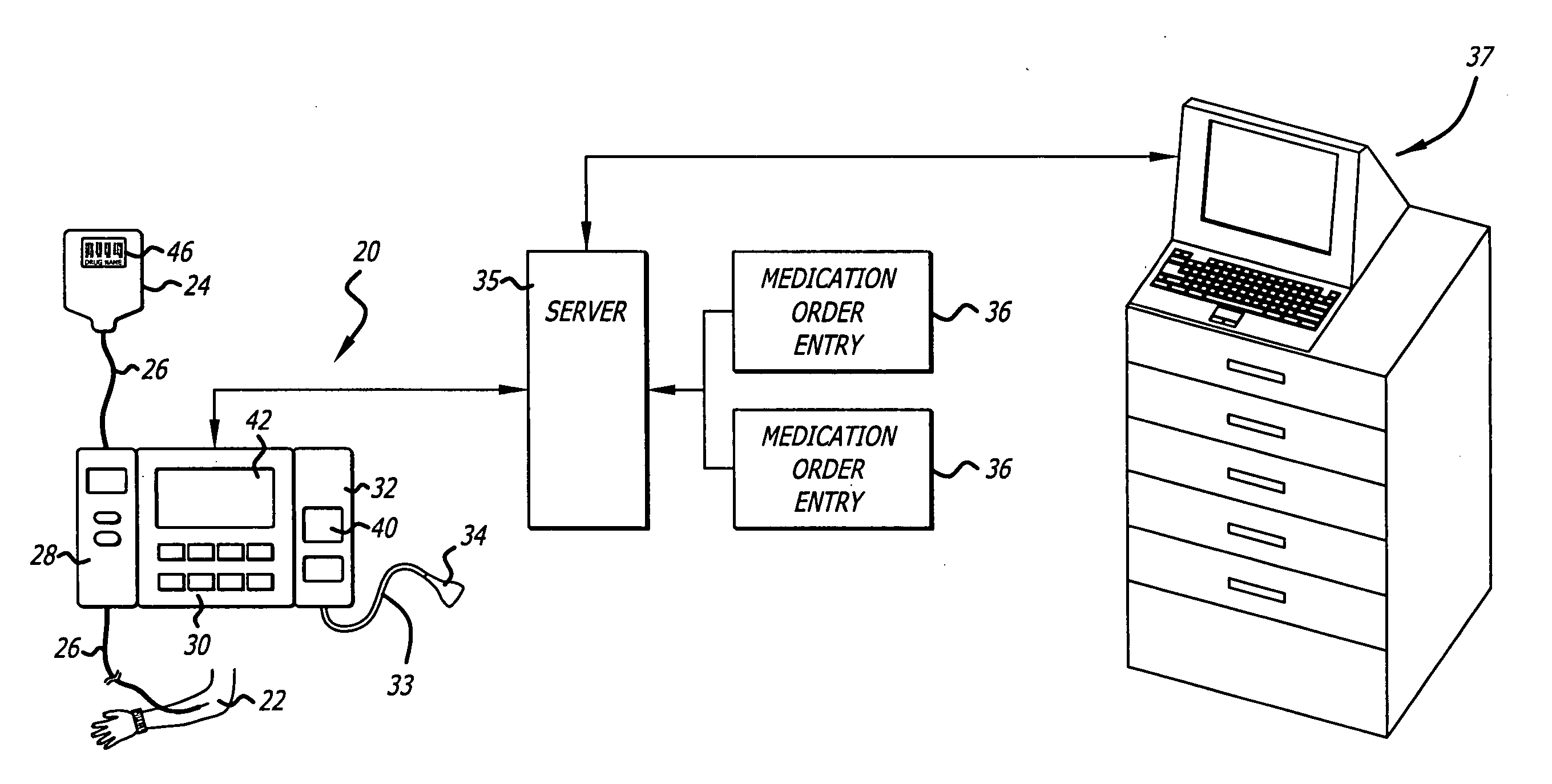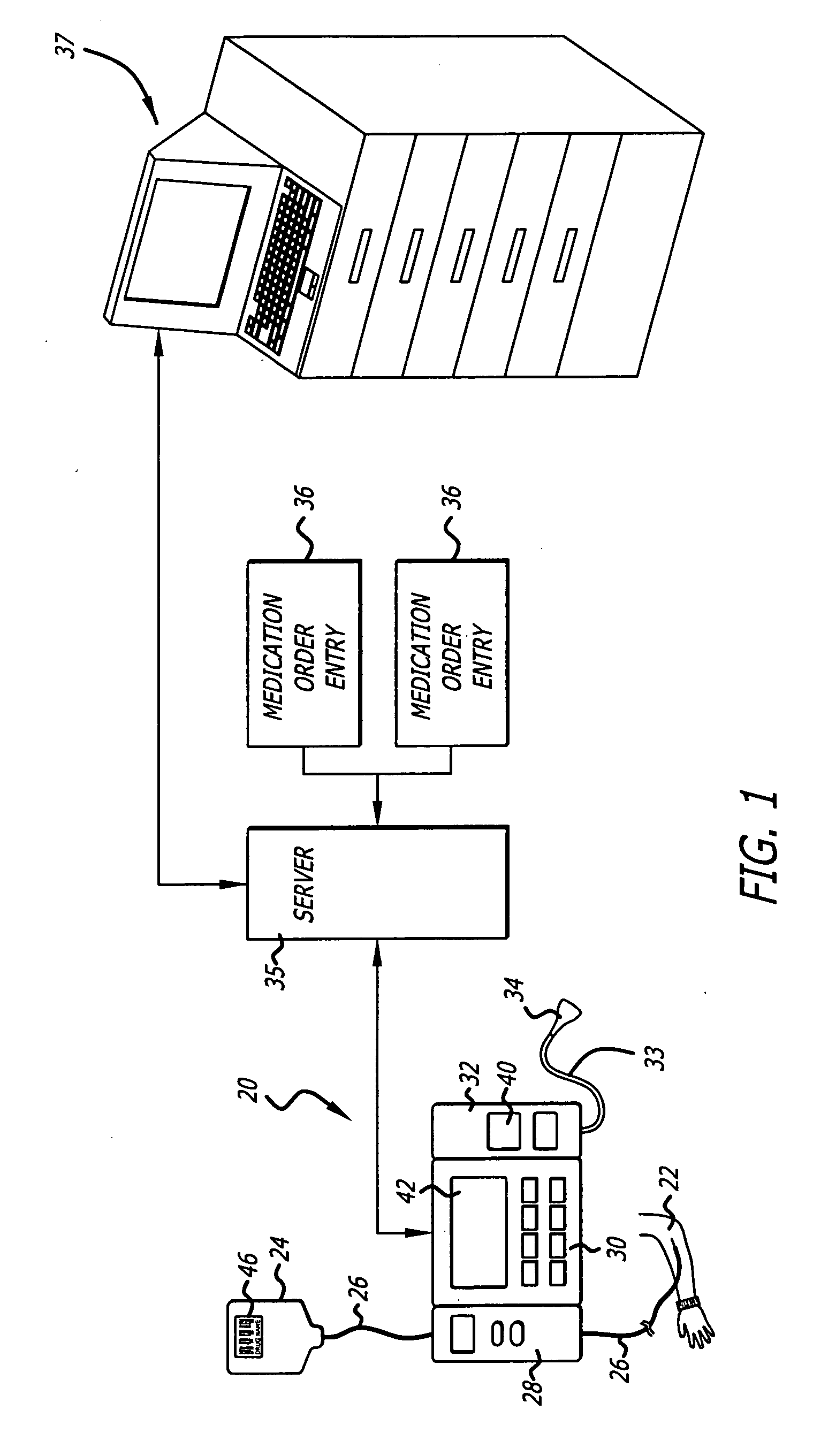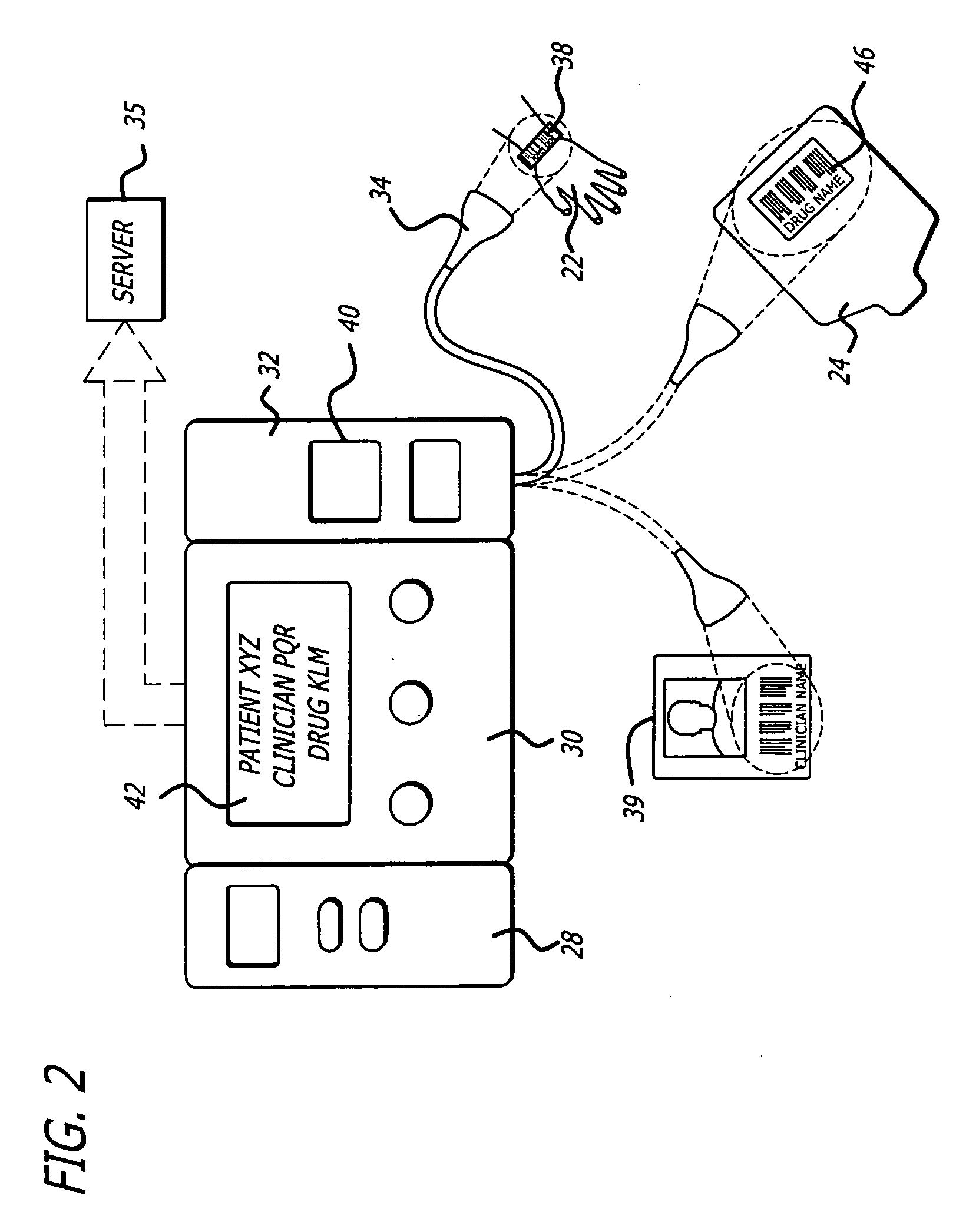Management of pending medication orders
a technology for managing pending medication orders and managing medications, applied in the direction of instruments, diagnostic recording/measuring, applications, etc., can solve the problems of increasing the number of patient injuries and deaths, significant problems for all health care facilities, and incompatible medications in these environments
- Summary
- Abstract
- Description
- Claims
- Application Information
AI Technical Summary
Benefits of technology
Problems solved by technology
Method used
Image
Examples
Embodiment Construction
[0034] Referring now in more detail to the drawings for purposes of illustration of embodiments of the invention, wherein like reference numerals designate corresponding or like elements among the several views, there is shown in FIG. 1 a partial block diagram of a system in accordance with certain aspects of the invention. An infusion pump system 20 is shown connected with a patient 22 to infuse medication fluid from an IV fluid container 24, such as a bag, to the patient through a fluid administration set 26. The pump system includes an infusion pump 28 located at the left side of a controller 30 and an auto identification module 32 or “auto ID module” located to the right side of the controller. The identification module in this case includes a tethered 33 bar code reader 34.
[0035] The controller 30 is connected with a server 35, which may take the form of any server or servers in a health care facility. The box 35 identified as “server” may be a single server or it may comprise...
PUM
 Login to View More
Login to View More Abstract
Description
Claims
Application Information
 Login to View More
Login to View More - R&D
- Intellectual Property
- Life Sciences
- Materials
- Tech Scout
- Unparalleled Data Quality
- Higher Quality Content
- 60% Fewer Hallucinations
Browse by: Latest US Patents, China's latest patents, Technical Efficacy Thesaurus, Application Domain, Technology Topic, Popular Technical Reports.
© 2025 PatSnap. All rights reserved.Legal|Privacy policy|Modern Slavery Act Transparency Statement|Sitemap|About US| Contact US: help@patsnap.com



